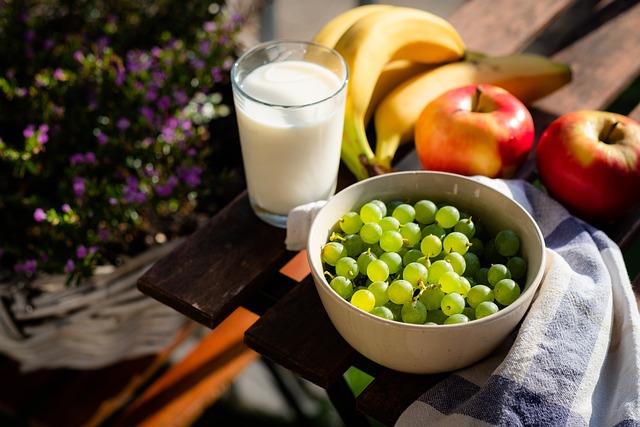Water is life. It’s essential for nearly every function in your body, from regulating temperature to supporting digestion and nutrient absorption. Yet, despite its importance, many people struggle to stay properly hydrated. One of the most common questions about hydration is: How much water do I really need? While the answer isn’t one-size-fits-all, understanding your body’s needs can help you stay healthy, energized, and performing at your best.
Why Hydration Matters
Before diving into how much water you need, it’s important to understand why hydration is so critical. Water plays a vital role in:
- Maintaining Body Temperature : Through sweating and respiration, water helps cool your body during physical activity or hot weather.
- Supporting Digestion : Water aids in breaking down food, absorbing nutrients, and eliminating waste.
- Lubricating Joints : Adequate hydration keeps cartilage—the cushioning material in joints—healthy and functional.
- Boosting Brain Function : Even mild dehydration can impair focus, mood, and cognitive performance.
- Promoting Skin Health : Proper hydration keeps skin plump, glowing, and less prone to dryness or irritation.
Without enough water, your body struggles to perform these functions efficiently, leading to fatigue, headaches, dizziness, and other symptoms of dehydration.
The “8×8” Rule: Myth or Fact?
You’ve probably heard the advice to drink eight 8-ounce glasses of water per day (about 2 liters or half a gallon). This guideline has been widely circulated, but does it hold up?
The truth is, while the “8×8” rule is a good starting point for some people, it doesn’t account for individual differences in age, gender, activity level, climate, or overall health. For example:
- An athlete training in the heat may need significantly more than 2 liters.
- Someone living in a cold climate with a sedentary lifestyle might require less.
- Pregnant or breastfeeding individuals have higher fluid needs due to increased demands on their bodies.
In short, the “8×8” rule oversimplifies hydration needs. Instead, let’s explore a more personalized approach.
Factors That Influence Your Daily Water Needs
Your hydration requirements depend on several factors. Here are the key considerations:
- Body Size and Composition
Larger individuals typically need more water than smaller ones because they have more cells requiring hydration. Muscle tissue also holds more water than fat tissue, meaning those with higher muscle mass may need additional fluids. - Activity Level
Physical activity increases water loss through sweat. If you’re exercising intensely or for extended periods, you’ll need to replenish lost fluids by drinking more water before, during, and after workouts. - Climate and Environment
Hot, humid weather or high altitudes increase water needs as your body works harder to regulate temperature. Conversely, cooler environments may reduce perspiration and fluid loss. - Dietary Choices
Certain foods contribute to hydration. Fruits like watermelon, cucumbers, and oranges are naturally high in water content, while salty or processed foods can increase your need for extra fluids. - Health Conditions
Illnesses such as fever, diarrhea, or urinary tract infections can cause rapid water loss. Similarly, conditions like diabetes or kidney disease may alter hydration needs. Always consult a healthcare provider if you’re unsure about your specific requirements. - Pregnancy and Breastfeeding
Expectant mothers need extra fluids to support fetal development, while breastfeeding women require additional water to produce milk.
How Much Water Should You Drink?
While there’s no universal answer, here are general guidelines based on research and expert recommendations:
- General Adults : The U.S. National Academies of Sciences, Engineering, and Medicine recommends a daily water intake of about:
- Men : 3.7 liters (or roughly 13 cups)
- Women : 2.7 liters (or roughly 9 cups)
This total includes all fluids consumed—not just plain water. Beverages like tea, coffee, and milk, along with water-rich foods, count toward your daily intake.
- Active Individuals : Add 0.5–1 liter (16–32 ounces) for every hour of moderate to intense exercise, depending on sweat rate and environmental conditions.
- Children : Fluid needs vary by age. For example:
- Ages 4–8: About 1.2 liters (5 cups) per day
- Ages 9–13: Around 1.6–1.8 liters (7 cups) per day
- Ages 14+: Similar to adult recommendations
Keep in mind that these are averages, and individual needs may differ.
Signs You’re Drinking Enough (or Too Little)
Listening to your body is key to staying hydrated. Here are signs to watch for:
Signs of Adequate Hydration
- Clear or pale yellow urine
- Regular urination (every 2–4 hours)
- Energized and alert throughout the day
- Smooth, supple skin
Signs of Dehydration
- Dark yellow or amber-colored urine
- Infrequent urination
- Dry mouth, lips, or skin
- Fatigue, irritability, or difficulty concentrating
- Muscle cramps or dizziness
If you notice any of these dehydration symptoms, sip water gradually to rehydrate. Avoid gulping large amounts quickly, which can upset your stomach.
Tips for Staying Hydrated
Staying hydrated doesn’t have to be complicated. Try these practical strategies:
- Start Your Day with Water
After hours without fluids overnight, drinking a glass of water first thing in the morning kickstarts hydration. - Carry a Reusable Bottle
Having water readily available encourages frequent sips throughout the day. - Set Reminders
Use phone alarms or apps to remind yourself to drink water if you tend to forget. - Flavor Your Water
Add slices of lemon, lime, cucumber, or mint to make water more appealing. - Eat Water-Rich Foods
Incorporate hydrating snacks like celery, strawberries, lettuce, and yogurt into your diet. - Monitor Urine Color
Aim for light yellow; darker shades indicate dehydration. - Adjust for Activity and Climate
Increase fluid intake during workouts, travel, or exposure to extreme temperatures.
Can You Drink Too Much Water?
While rare, overhydration—or hyponatremia—can occur when you consume excessive amounts of water, diluting sodium levels in your blood. Symptoms include nausea, confusion, seizures, and even coma in severe cases. To avoid this, listen to your thirst cues and don’t force yourself to drink beyond what feels comfortable.

